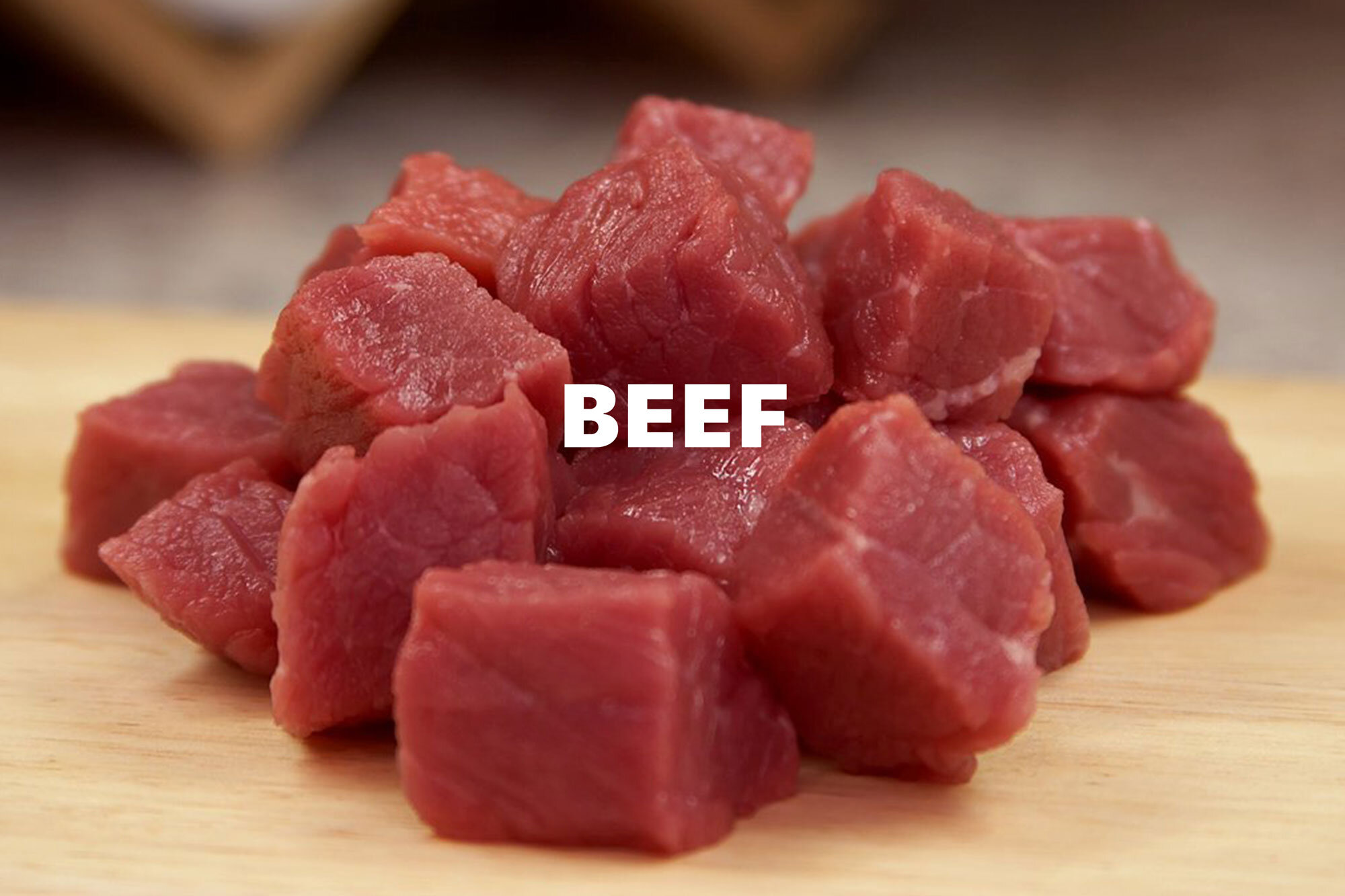Beef
Beef is relatively healthy for dogs being high in protein, iron (heme-iron that prevents anemia), zinc, selenium and vitamins B12, B3 and B6.
A protein-rich diet is important for your dog as it provides the energy your dog needs, and a lean source of beef is a great option. Beef can provide the essential fatty acids, minerals, and vitamins that give your dog a healthy coat, skin, joints, and strong muscles. Omega-3 in beef can also help with skin problems.
Although usually high in fat, red meat is not known to cause arteriosclerosis in dogs like in humans and there are plenty of beef sources that are leaner and low in fat.
RAW BEEF
Downside to beef is if given raw, it can pose a Salmonella food poisoning risk with the following symptoms:
Vomiting
Lethargy
Diarrhoea
High Fever
Loss of Appetite
With Gyū at Kuro Snacks, all beef is carefully deboned before it is slowly processed and dehydrated at a minimum of 70°C for over 6 hours to avoid the risk of salmonella or other nasty bacterial infections.
BEEF BONES
Beef bones can also splinter which is dangerous for dogs as it can cause very painful cuts to the gums, mouth and throat, or, worse, can lead to choking, serious internal injuries like gastrointestinal tract puncture, punctured organs, and even death.
Signs of bones stuck in your dog’s throat:
Anxious Pacing
Choking
Constant Licking of Lips
Difficulty Sitting or Staying Still
Drinking Water Excessively
Gagging
Vomiting
Wretching
BEEF ALLERGIES
An important thing to note is that some dogs are allergic to beef. They can become sick and have digestive and other unpleasant side effects, including:
Coughing
Paw biting
Wheezing
Vomiting
Skin infection skin rashes
Diarrhea
Bald patches
Chronic gas
Hives
If your dog has any issues with Raw Beef, Beef Bones or Beef Allergies, or is showing any one of the respective symptoms. immediately seek out medical attention. Please avoid Gyū if your dog is allergic to beef and consider other options or bespoke snacks instead.
With Gyū at Kuro Snacks, all beef is carefully deboned before it is slowly processed and dehydrated at a minimum of 70°C for over 6 hours to avoid the risk of salmonella or other nasty bacterial infections. As the beef pieces are sliced thinly, there is no risk of any bone being undetected.
Gyū • 牛 • Beef
With Gyū at Kuro Snacks, all beef is carefully deboned before it is slowly processed and dehydrated at a minimum of 70°C for over 6 hours to avoid the risk of salmonella or other nasty bacterial infections. As the beef pieces are sliced thinly, there is no risk of any bone being undetected.


